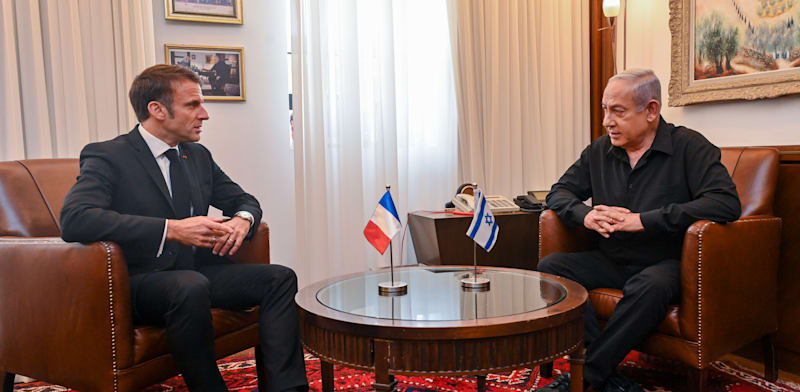The outrageous reactions to the implementation of the Citizenship (Amendment) Act (CAA) from most Opposition parties and Muslim organisations are on predictable lines. Those who had directly or vicariously contributed to the creation of Pakistan will find it difficult to empathise with the victims of this man-made calamity that hit the subcontinent in 1947. The wily British, who wanted a satellite State in this part of the world to serve their imperial aspirations, found allies in the Muslim League and Communists, towards the Balkanisation of India.

To begin with, the Congress vehemently opposed the Partition. Gandhiji proclaimed Pakistan’s formation could only happen over his dead body. However, the party soon abandoned its principled stance in favour of political expediency. In June 1947, it endorsed India’s division, paving the way for the passing of the Indian Independence Act by the British Parliament, triggering massive communal riots. Most of the Hindus in the subcontinent believed the Congress when it repeatedly said that the demand for Pakistan would never translate into reality. As a result, a large chunk of Hindus and Sikhs stayed put in areas that later became parts of Pakistan, and paid a heavy price for their misplaced trust. Leaders of the Congress and the Muslim League assured the beleaguered Hindus that their religious identity and dignity would be safe in the new Islamic nation. Muhammad Ali Jinnah told Pakistan’s minorities, “…You may belong to any religion or caste or creed that has nothing to do with the business of the State.”
Avtar Narain Gujral, the father of IK Gujral, who was India’s Prime Minister (PM) from 1997 to 1998, a senior Congress leader of Jhelum, stayed in Pakistan and became a member of the Pakistan Constituent Assembly. A year later, he was forced to flee. This poignant episode has been encapsulated by his younger son, Satish Gujral, in A Brush with Life: An Autobiography. Another such leader was Jogendra Nath Mandal, a Dalit belonging to pre-Partition Bengal who served as the first law and labour minister of the newborn Islamic nation. Facing religious persecution, he too, moved back to India.
After the flow of hapless refugees turned into a torrent, in 1950, PM Nehru invited then Pakistani PM Liaquat Ali Khan to Delhi. A pact guaranteeing the rights of minorities in both countries was signed. But Pakistan never kept its promise. In residual India, the number of Muslims has risen over six times since Partition. In Pakistan, however, the Hindu-Sikh population has dropped from 16% to less than 2%. In Bangladesh, the share of the Hindu-Buddhist population has plummeted from 28% to 8%. In Afghanistan, in 1970, there were 0.7 million non-Muslims. They don’t exist now!
The minorities in India’s Islamic neighbours are facing an existential crisis. Are they responsible for their sad condition? Their fault is they believed leaders who let them down. CAA is a modest effort to make up for broken promises. Is CAA anti-Muslim? Isn’t it violative of Article 14 of the Constitution? Doesn’t CAA violate the secular principle of the Constitution by linking citizenship to religious identity? Most of these objections are baseless: CAA doesn’t affect any Indian in any way whatsoever.
Why not extend the CAA provisions to Ahmadis? Aren’t they also victims of religious persecution in Pakistan? Yes, they are. But they are the ones who worked vociferously for the creation of Pakistan. The Lahore Resolution calling for Pakistan was drafted by Muhammad Zafarullah Khan, an Ahmadiyya, who became Pakistan’s first foreign minister. Mirza Basheer-ud-Din Mahmood Ahmad, the Caliph of the Ahmadiyyas, raised the Furqan Battalion from his community to fight for Pakistan against India in the first Kashmir War.
Those labelling the CAA as a “blow to the Constitution” oppose the Uniform Civil Code (Article 44) claiming it infringes the right of communities to preserve their distinct culture. They also pleaded for the restoration of Article 370, which gave preferential treatment to a Muslim-majority State.
Even countries such as the US and the UK extend preferential treatment in granting citizenship to persecuted minorities. Following a campaign by Senator Frank Lautenberg in 1989-90, the US amended its laws to provide refuge and citizenship to persecuted minorities in the erstwhile Soviet Union and Iran. The UK’s Nationality and Borders Act offered nationality, asylum, and immigration, including to victims of slavery and human trafficking. India had extended similar facilities to the Tibetans following the Chinese invasion.
India has a moral responsibility towards non-Muslim minorities in Afghanistan, Pakistan and Bangladesh, because of a shared history and commitments made in the past. On December 18, 2003, former PM Manmohan Singh, speaking in the Rajya Sabha, said, “After the partition of our country, the minorities in countries like Bangladesh, have faced persecution, and it is our moral obligation that if circumstances force people, these unfortunate people, to seek refuge in our country, our approach to granting citizenship to these unfortunate persons should be more liberal.” Isn’t CAA doing just that?
Balbir Punj is the author of Tryst with Ayodhya: Decolonisation of India. The views expressed are personal















